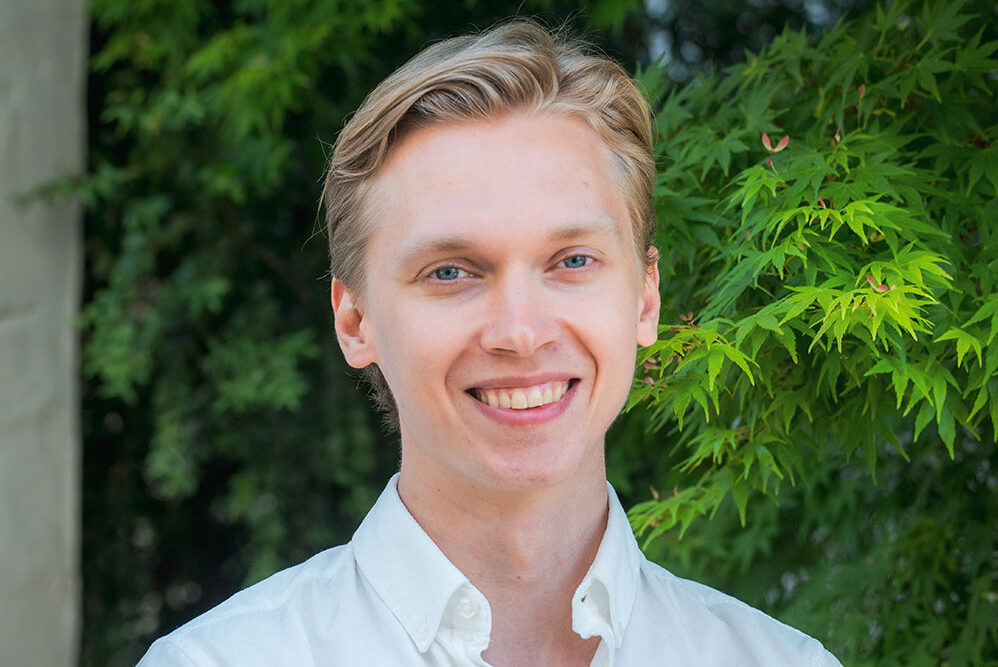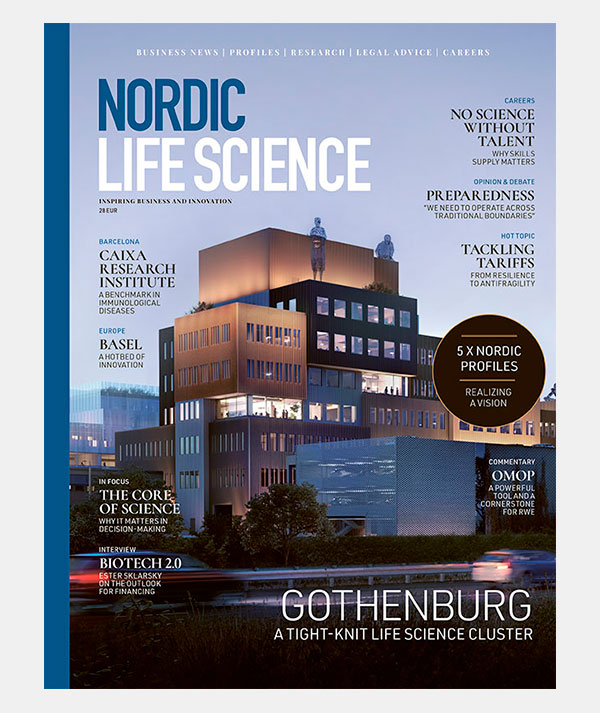Katalin Karikó: “Decades and decades of work were involved”

Scientific research demands years, sometimes a lifetime’s worth, of persistence. One of the 2023 Nobel Prize winners in Physiology or Medicine, Dr. Katalin Karikó, PhD, has shown more determination than most. Despite a series of setbacks, she forged ahead on messenger RNA research that contributed to a vaccine for the COVID-19 virus.
Katalin Karikó, a biochemist who is currently a professor at the University of Szeged in Hungary and an adjunct professor at the University of Pennsylvania, had her research stalled more than once, but found support from industry and colleagues. Together with her long-time colleague Dr. Drew Weissman, Karikó received the Nobel Prize in Physiology or Medicine 2023 for 20-years of work on messenger (mRNA), which is the genetic messenger that provides DNA with instructions to make certain proteins. Their studies laid the groundwork for the COVID-19 vaccine.
Disbelief! I did not believe it, although people said it would happen.”
Karikó’s reaction to winning the Nobel Prize was, “Disbelief! I did not believe it, although people said it would happen.”
From Hungary to the USA
Katalin Karikó began her work with RNA in 1978 in the Biological Research Center at the University of Szeged in her native Hungary.
“I synthesized the short RNA and started working with viruses,” she says. “We tested short RNA molecules with antiviral effects.”
Her doctorate advisor always reminded her while doing research to consider, “Is this good for therapy?” she explains.
Unfortunately, their team lost its funding in the 1980s, and in 1985 Karikó emigrated to the U.S. with her husband and daughter after receiving an offer to be a post-doctoral student at Temple University in Philadelphia, Pennsylvania. After three years working there, she got a job offer from Johns Hopkins University, prompting a professor at Temple to try to have her deported, resulting in the loss of the job offer.

More than 250 mRNA trials going on
Katalin Karikó later took a position at University of Pennsylvania and met Weissman in 1997, while waiting for the copying machine. They soon teamed up and by 2005 Karikó and Weissman published a paper about the potential for mRNA to transport new instructions to cells. However, lab-made mRNA caused inflammation when delivered into human immune cells.
Companies are now eager to support the mRNA platform technology. It’s a faster way to deliver a vaccine.”
In a curiosity-driven series of experiments, Karikó and Weissman discovered that by altering one of the four types of nucleosides that make up the mRNA, the inflammatory nature of the mRNA disappeared. Their research has opened the door for treatments for numerous infectious, acute and genetic diseases and has enabled vaccines to be developed much faster.

“There are more than 250 mRNA trials going on now,” Karikó says. “You can for example induce tolerization against allergies, such as a peanut allergy.”
She says that several projects are currently moving to clinical phases, and processes are becoming more efficient, so less mRNA is needed and there are fewer side effects.
“Companies are now eager to support the mRNA platform technology. It’s a faster way to deliver a vaccine,” she adds.
Helping people understand science
Despite the perception by some members of the public that the COVID-19 vaccine was rushed into production, “Decades and decades of work were involved,” says Karikó.
“The composition of the vaccines is almost the same, only the order of the nucleotides that determine the order of the amino acids of the viral antigens is altered. Just changing the template DNA will lead to production of the new mRNA,” describes Karikó.
People were blaming everything on the vaccine. Someone even said they got the vaccine and then got pregnant. In human history, it’s like blaming Zeus for lightening.”
This is why she was mystified by the number of people who refused to get the vaccine, citing potential side effects. She even received a death threat from someone attributing unrelated issues to the vaccine.
“People were blaming everything on the vaccine. Someone even said they got the vaccine and then got pregnant,” Karikó says. “In human history, it’s like blaming Zeus for lightening.”
Often members of the public read one or two posts on social media by people citing “problems” with the vaccine and readers then latched on to those comments as fact, according to Karikó. “We need to understand why people think that way [distrustful of science]. We must figure out what is driving them. We can try to use simple language to help people understand science.”
Most pandemics are respiratory diseases. It’s important to have a quick and easy method of testing for an infection.”
To prevent or limit the next global health crisis, countries need to establish scientific entities to respond to health threats before they become widespread, Karikó believes. “Most pandemics are respiratory diseases. It’s important to have a quick and easy method of testing for an infection,” she says.

“They don’t know the game.”
Her goal now is to start a company with her daughter and develop a treatment for a neurodegenerative disease, which she declined to name to avoid drawing attention.
Now at the top of the scientific world, Karikó was once a research assistant professor at University of Pennsylvania, but was forced to retire ten years ago after years of struggling for funding since work on mRNA was not seen as having value. Efforts by Drew Weissman and other colleagues, including cardiologist Elliot Barnathan and neurosurgeon David Langer, helped keep the work going.
Rather than assign blame for her difficulties, Karikó says she would like to see the system for cultivating researchers improved.”
However, fearing she would not get to do the type of research on mRNA that she wanted, Karikó joined company BioNTech in 2013, becoming Senior Vice President, and was there during the company’s feverish, and eventually successful, efforts to produce a COVID-19 vaccine.
Rather than assign blame for her difficulties, Karikó says she would like to see the system for cultivating researchers improved, because scientists who are immigrants and those who are not well-connected in the U.S. often struggle.
“They don’t know the game,” she says. “If you don’t have a famous mentor, you are nobody.”
Katalin Karikó
- Age: 69
- Born: Szolnok, Hungary
- Nationality: Hungarian and American
- Education: University of Szeged, Hungary, BSc, PhD
- Current position: Professor, University of Szeged, Hungary
- Personal: Married, one daughter, two grandchildren
- How she relaxes: “I like to watch real crime investigations and shows like Columbo. I run and use the rowing machine.”
about the author

Ellen R. Delisio is a US-based freelance journalist and editor. Since 2010 she has written numerous articles, including several Nobel Prize interviews, for NLS magazine.
Updated: February 4, 2025, 03:24 pm
Published: December 20, 2023












